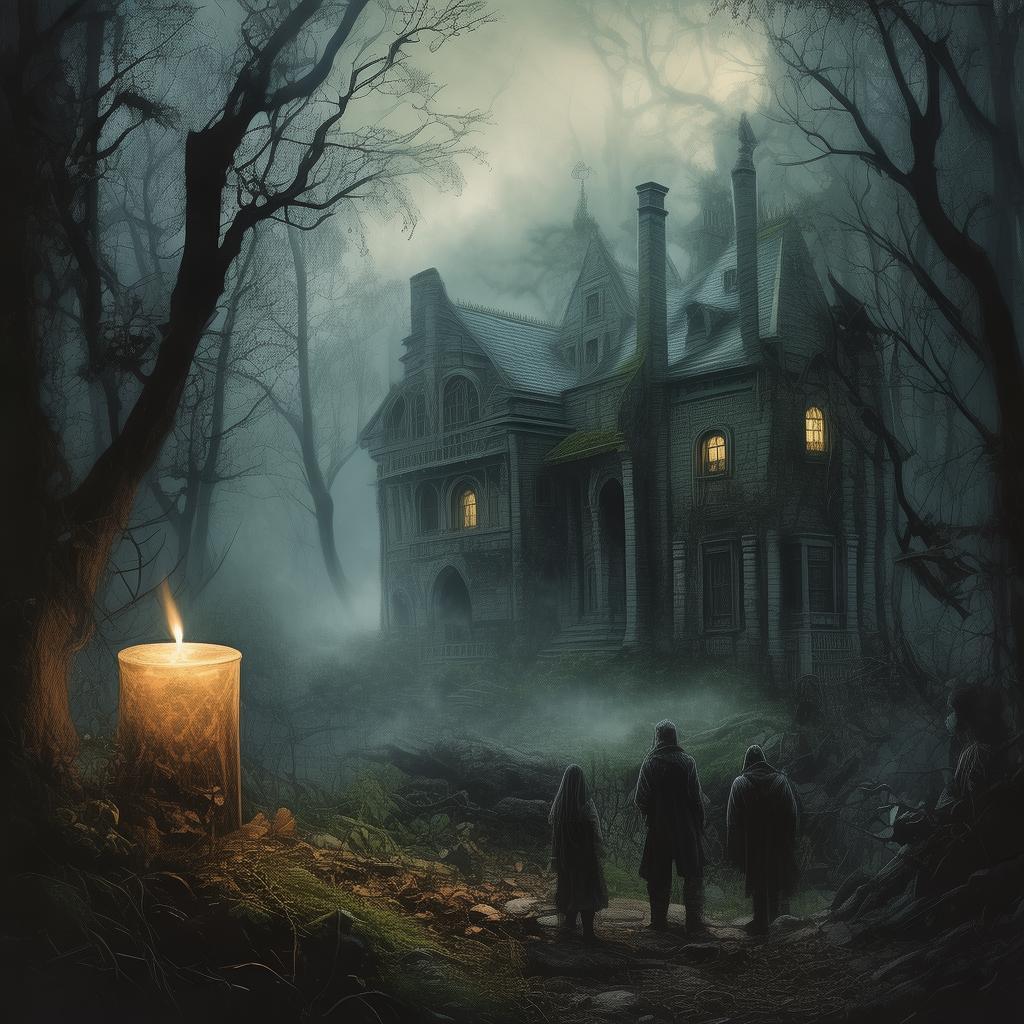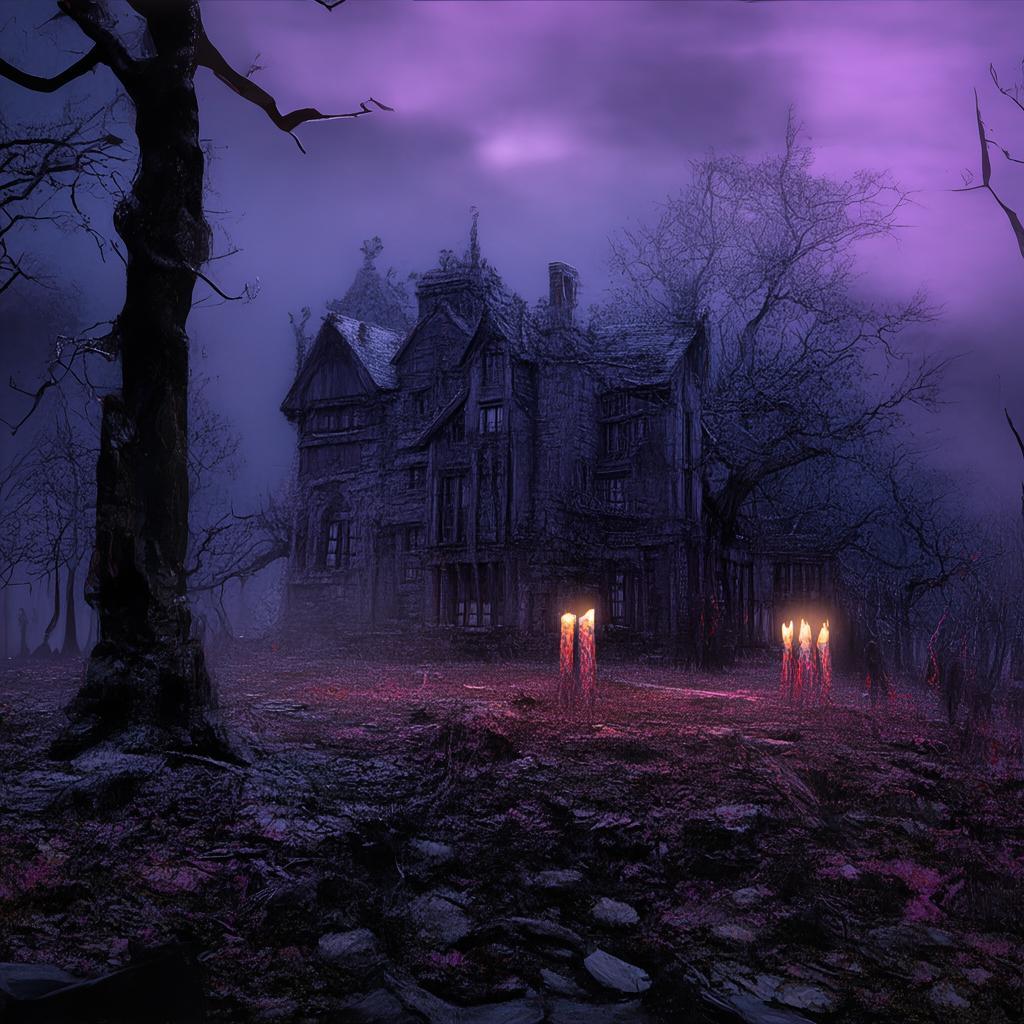The Symphony of Echoed Souls
In the heart of a small, foggy town, where the streets were as old as the legends whispered among the locals, stood the Grand Symphony Hall. The hall was a grandiose structure of red brick and towering windows, once a beacon of music and joy, now shrouded in silence and dust. Its last performance had been years ago, a grand finale that was cut short by a tragic fire. The hall had since become a place of hushed whispers and ghostly tales.
In a dimly lit room at the back of the hall, nestled between towering stacks of sheet music, lay the piano of Mr. Elias Voss, the conductor whose life and art had been the heartbeat of the hall. The piano was draped in cobwebs, but its keys still awaited the touch of a master's hands.
One night, a storm raged outside, and the old hall trembled as if to dance to the tempest's melody. In the dead of the night, a young pianist named Clara stumbled upon the hall. The storm had driven her here, seeking shelter, but the sight of the piano, standing resolute and silent, drew her in like a siren's call.
Clara had heard the stories, tales of the ghostly conductor who had vanished mysteriously, his last composition left incomplete and haunting. But curiosity and the allure of the piano overrode her fear. With trembling fingers, she pressed a single key, and a soft, melancholic note echoed through the hall.

The sound seemed to pull her in, and Clara felt a strange connection to the instrument. She played a few more notes, and the room seemed to vibrate with a life of its own. The storm outside had died down, and a hush settled over the hall.
The next morning, as the sun cast its first rays through the dust-laden windows, Clara returned to the hall, her heart pounding with the memory of the night before. She had no idea why the piano had spoken to her, or if it was merely a trick of the storm.
Days turned into weeks, and Clara's visits became a routine. Each time, she played a few bars of Mr. Voss's incomplete composition, and the hall seemed to come alive. She began to see the spirits of the conductor's past performances, ethereal figures who moved gracefully, their faces illuminated by the light of Clara's piano.
The spirits spoke to Clara through the piano, sharing their stories. Each one was a fragment of a greater symphony, a life cut short, a love lost, a dream unfulfilled. Clara's heart ached for these souls, their tales of joy, heartbreak, and redemption resonating within her.
As the stories unfolded, Clara became more and more attached to the hall. She began to research Mr. Voss, seeking clues about his final days. She discovered that he had been working on a piece that would honor the memories of each spirit, a final composition that would unite them in eternal harmony.
One night, as Clara played the last few bars of the composition, a ghostly figure appeared, the conductor himself. His eyes were filled with sorrow, yet there was a spark of hope in their depths. "Clara," he whispered, "you have heard the symphony of my soul. It is now time for you to finish what I began."
Clara's heart raced, and she felt a sense of responsibility she couldn't shake. She had to finish the composition, to give these spirits the peace they had long sought. But the task seemed insurmountable. The music was not only a testament to the conductor's art but also a bridge between the living and the dead.
The hall became a sanctuary for Clara, her days and nights spent writing and rewriting the final piece. The spirits seemed to guide her, their voices merging with the music, their emotions pouring through the keys. As the composition took shape, so too did the spirits of the hall, finding solace in the final bars.
On the night of the hall's reopening, Clara stood before the audience, the conductor's grand piano before her. The hall was filled with the echoes of the past, and Clara's fingers danced across the keys. The symphony began, a hauntingly beautiful melody that brought tears to the eyes of all who listened.
The spirits, now freed from their eternal imprisonment, joined the audience, their ethereal forms visible only to those who had heard their tales. As the final note rang out, a hush fell over the hall. Then, as quickly as it had come, the spirits vanished, leaving behind only the music and the memories of those whose stories had been told.
Clara had finished the symphony of echoed souls, a masterpiece that bridged the worlds of the living and the dead. The hall stood once more, not as a mausoleum for music, but as a testament to the enduring power of art and the eternal connection between the human soul and the universe.
And so, the Grand Symphony Hall became a place of healing, where the music of the past could resonate with the music of the present, a ghostly symphony that would be heard for generations to come.
✨ Original Statement ✨
All articles published on this website (including but not limited to text, images, videos, and other content) are original or authorized for reposting and are protected by relevant laws. Without the explicit written permission of this website, no individual or organization may copy, modify, repost, or use the content for commercial purposes.
If you need to quote or cooperate, please contact this site for authorization. We reserve the right to pursue legal responsibility for any unauthorized use.
Hereby declared.









